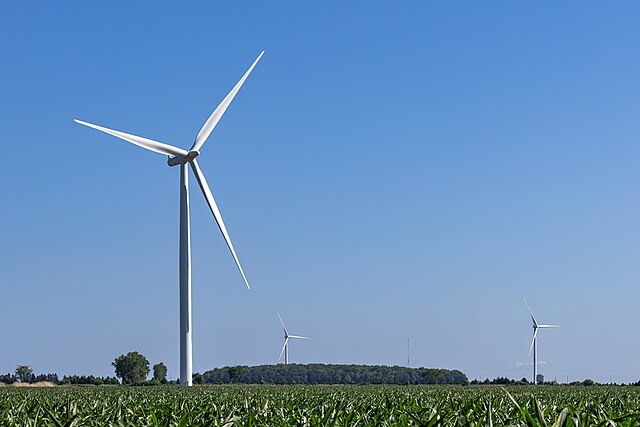
Britain is projected to fall short of the progress required to meet its climate commitments over the coming decade, primarily due to insufficient growth in the supply of clean electricity, according to the government’s energy system operator.
The latest 10-year forecast of the UK’s carbon emissions, published by the government-owned National Energy System Operator (Neso), indicates that by 2035 the country will be emitting almost one-third more carbon than it would under scenarios aligned with its legally binding target to reach net zero emissions by 2050.
This marks the second official warning in a month regarding the UK’s faltering climate ambitions. It follows a report by the Climate Change Committee which found that approximately 40% of the emissions reductions required to meet the UK’s interim 2030 climate target remain at significant risk, or lack sufficient policy detail to ensure delivery.
Neso’s forecast, which reflects the operator’s current assessment based on existing project pipelines and policies, aims to highlight “the gap between the current trajectory and the level required” to meet long-term targets.
According to the report, the UK is expected to produce 274 million tonnes of carbon dioxide (MtCO₂) by 2035—considerably above the 185–204 MtCO₂ range associated with scenarios where the UK remains on course for net zero by mid-century.
Fintan Slye, Chief Executive of Neso, acknowledged that current progress on decarbonising the energy system “isn’t sufficient”, stressing that the UK must “go further and faster, accelerating the deployment of clean energy technologies” in order to deliver a sustainable and affordable energy system over the long term.
“The choices made today will shape the success of each wave of Britain’s transition. That means speeding up the adoption of energy efficiency measures, empowering households and businesses to make informed choices on things like demand flexibility, buying an electric car and switching to low-carbon heating,” Slye said.
The system operator—brought under government ownership last year after previously being part of National Grid—stated that halving UK emissions to approximately 200 MtCO₂ by 2035 would only be achievable through a rapid and widespread adoption of low-carbon technologies, spanning industry, households, and transport.
Nevertheless, Neso’s own modelling suggests that Britain’s clean electricity capacity is unlikely to expand quickly enough. While current projections anticipate 148GW of renewable electricity capacity by 2035, this falls short of the 170–190GW range required under net zero-aligned scenarios.
These findings are expected to intensify scrutiny of the government’s plans to stimulate greater investment in renewable energy and energy-efficient housing.
In a recent “state of the climate” address to the House of Commons, Energy Secretary Ed Miliband criticised political figures who oppose net zero policies, accusing them of betraying future generations. His remarks are seen as a rebuttal to the climate-sceptic positions of the Conservative Party—some of whose members have pledged to scrap the 2050 target—and Reform UK, which has vowed to dismantle all net zero policies and subsidies for renewable energy.
A government spokesperson said: “This report sets out the need to accelerate the country’s progress to clean power – which is exactly what we are doing by sprinting to clean power by 2030 and delivering the most significant investment in history in clean, homegrown energy that we control.
“Our actions over the last year have already laid strong foundations for achieving this mission – by approving projects that could power 2m homes, attracting over £40bn in private-sector investment, setting up the publicly owned Great British Energy, launching a new golden age of nuclear power, and introducing plans to upgrade millions of homes to cut bills for homeowners and renters.”
——————————————————————————
At Natural World Fund, we are passionate about restoring habitats in the UK to halt the decline in our wildlife.

